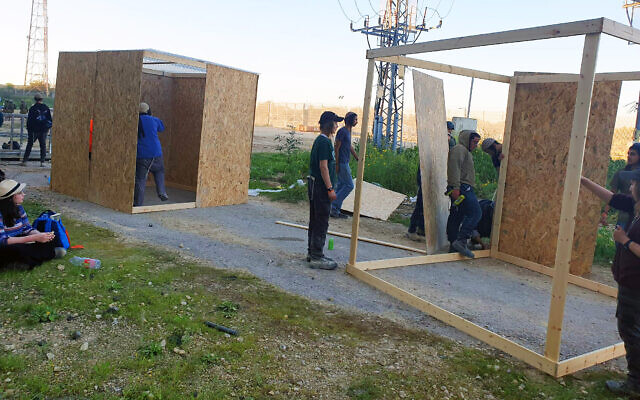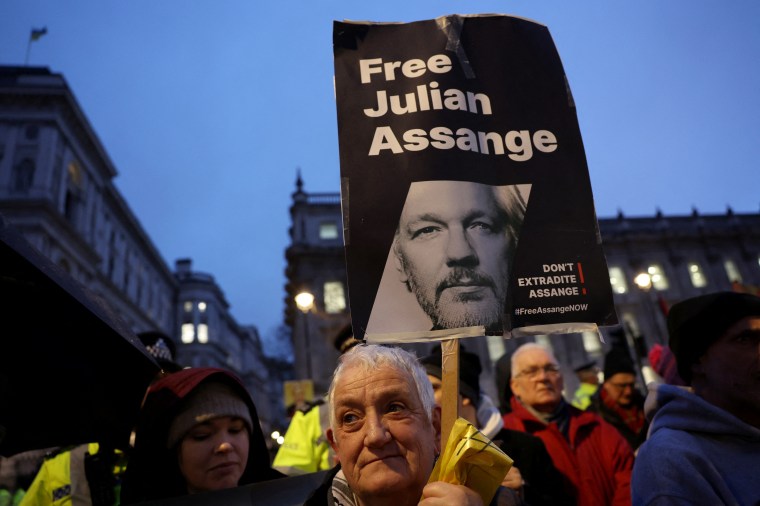Far-right activists break into Gaza, try to reestablish Israeli settlement
Some make it 500 meters into Strip before being turned back; army says makeshift structures near Erez Crossing erected within Israeli territory
Dozens of far-right activists broke through an Israeli military checkpoint and crossed into Gazan territory on Thursday afternoon, with some making it hundreds of meters into the Strip before being corralled by troops, the army said.
The activists had gathered at the Erez crossing between northern Gaza and Israel to rally for the rebuilding of Israeli settlements in Gaza, when they “violently broke through an IDF checkpoint,” an Israel Defense Forces spokesperson said.
Some made it around 500 meters into the Strip, while others managed to set up at least two buildings adjacent to the border fence, declaring it the rebirth of a settlement movement ended by Israel in 2005.
The IDF said those who made it inside Gaza were eventually turned back by soldiers and taken back to Israel.
Video footage published by Army Radio shows several activists seemingly well inside Gaza being rounded up by IDF soldiers.
Other settler activists set up makeshift buildings of wood and corrugated plastic beyond the walls of the Erez crossing itself, but still on Israeli territory, the IDF said.
Pictures and videos of the event show the activists putting up their structures within the Erez Crossing complex, as well as checking their cell phones and standing around.
IDF soldiers can be seen in the background, though they did not initially interfere with their activities.
The Nachala settlement organization, which held a major conference at the end of January to rally support and momentum for its plans to resettle Gaza, sent out images of the activists erecting two of the buildings and affixing a mezuzah to one of them in a short religious ceremony.
The activists at the site said the “settlement” was being called New Nisanit, after the former Nisanit settlement in the far northern Gaza Strip, one of 22 Israeli settlements inside Gaza evacuated in 2005 as part of Israel’s unilateral withdrawal from the Strip.
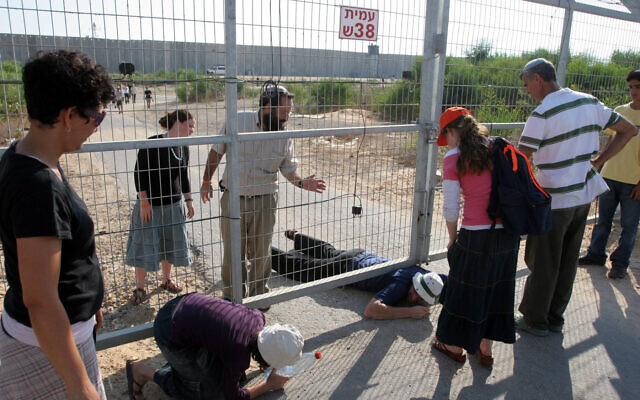
The IDF said that soldiers were “with the demonstrators at all times and are working to transfer them to the Israeli police forces who were called to the scene in order to arrest them.”
The Israel Police said that officers from the southern district and from the Border Police “were forced to operate within Gaza Strip territory” due to “real danger” to the lives of the activists. Nine of the activists were arrested for violating a military order and stopping a police officer from fulfilling his duty.
It has not yet been decided whether to charge those who were detained.
The protest occurred as calls were renewed in Washington for Israel to reopen the Erez Crossing to allow easier access for humanitarian aid transfers to north Gaza, after an attempt to transfer aid into Gaza City earlier in the day set off a stampede that left over 100 Palestinians dead, according to Hamas-run health authorities in Gaza. Israel said most of those killed were trampled as thousands rushed the trucks to loot them, though it admitted opening fire at a group that also rushed toward an area where troops were stationed.
The IDF did not immediately confirm if the structures set up by the settlers were removed.
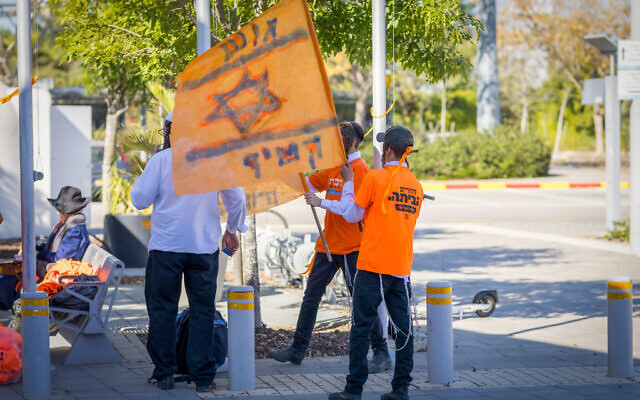
The construction of the structures appears to have been part of a coordinated effort by Nachala to try and build a new settlement outpost in Gaza.
The organization sent out a notice to its activists on Wednesday inviting them to join a march to the northern Gaza border to call for “renewed settlement,” and telling them to be prepared with “appropriate gear,” including “sleeping bags for those interested.”
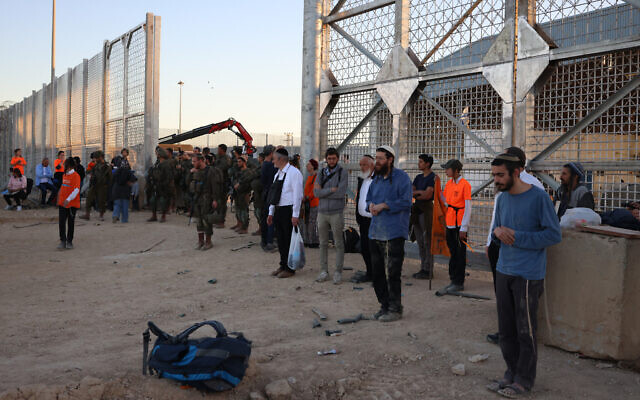
Nachala held a rally in Jerusalem in January laying out its plans to build six new settlements in the Gaza Strip through the efforts of dedicated settler groups designated to each of the proposed new settlement sites.
Eleven cabinet ministers and 15 coalition MKs participated in the conference and pledged to rebuild the settlements, with ultra-nationalist National Security Minister Itamar Ben Gvir calling for the “voluntary” emigration of Gazans from the territory, and Communications Minister Shlomo Karhi of the Likud even endorsing the forcible transfer of Palestinians from Gaza.

Prime Minister Benjamin Netanyahu and other members of the war cabinet have repeatedly said that Israel is not seeking the forced transfers of Palestinians and will not support renewed Israeli settlement of the Strip.
